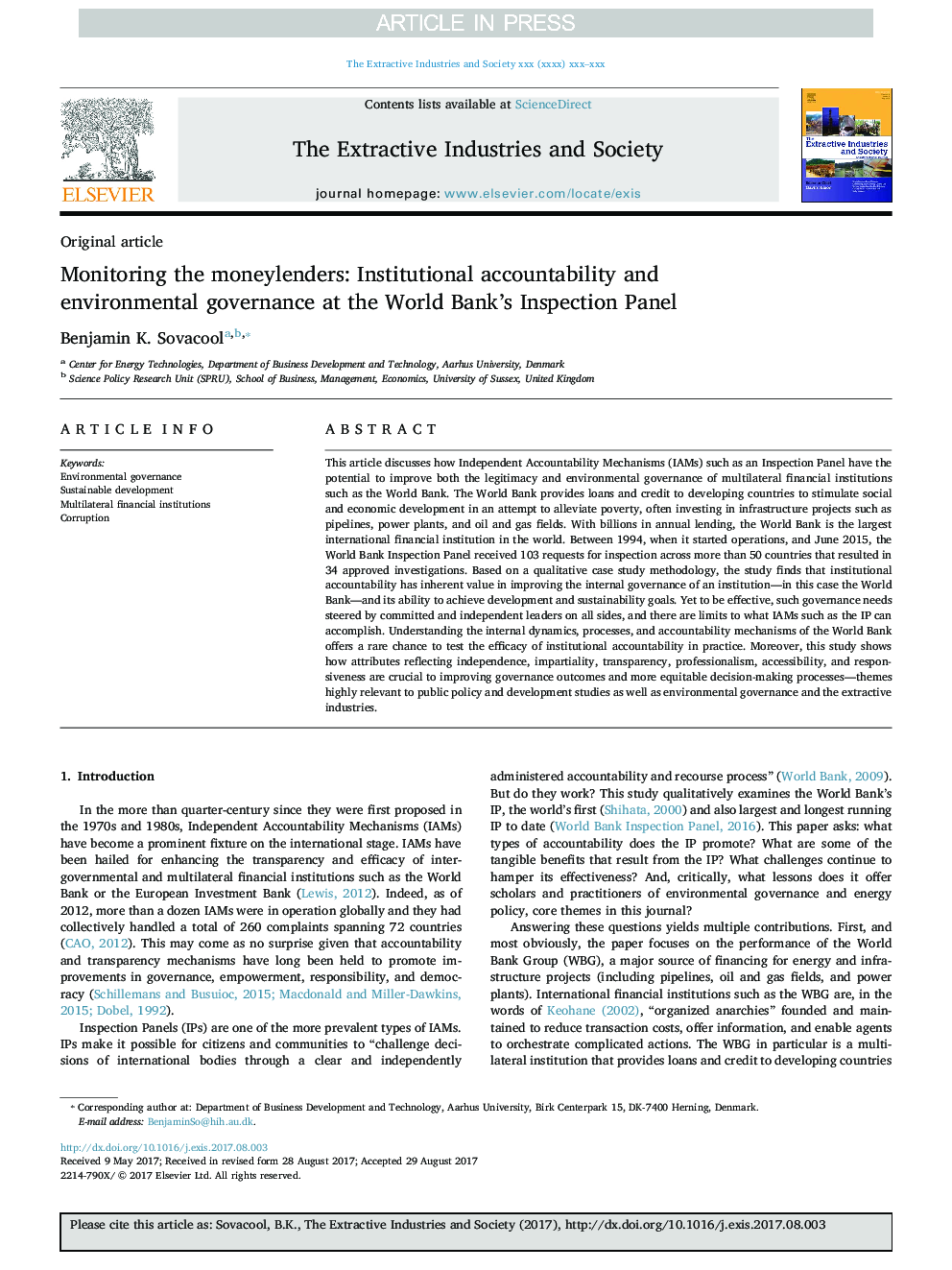| Article ID | Journal | Published Year | Pages | File Type |
|---|---|---|---|---|
| 7454402 | The Extractive Industries and Society | 2017 | 11 Pages |
Abstract
This article discusses how Independent Accountability Mechanisms (IAMs) such as an Inspection Panel have the potential to improve both the legitimacy and environmental governance of multilateral financial institutions such as the World Bank. The World Bank provides loans and credit to developing countries to stimulate social and economic development in an attempt to alleviate poverty, often investing in infrastructure projects such as pipelines, power plants, and oil and gas fields. With billions in annual lending, the World Bank is the largest international financial institution in the world. Between 1994, when it started operations, and June 2015, the World Bank Inspection Panel received 103 requests for inspection across more than 50 countries that resulted in 34 approved investigations. Based on a qualitative case study methodology, the study finds that institutional accountability has inherent value in improving the internal governance of an institution-in this case the World Bank-and its ability to achieve development and sustainability goals. Yet to be effective, such governance needs steered by committed and independent leaders on all sides, and there are limits to what IAMs such as the IP can accomplish. Understanding the internal dynamics, processes, and accountability mechanisms of the World Bank offers a rare chance to test the efficacy of institutional accountability in practice. Moreover, this study shows how attributes reflecting independence, impartiality, transparency, professionalism, accessibility, and responsiveness are crucial to improving governance outcomes and more equitable decision-making processes-themes highly relevant to public policy and development studies as well as environmental governance and the extractive industries.
Related Topics
Life Sciences
Environmental Science
Management, Monitoring, Policy and Law
Authors
Benjamin K. Sovacool,
